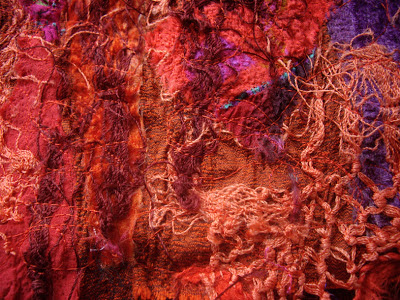[Words by Raymond, Music by Theatre of Tragedy, 1998]
He gave to her, yet tenfold claimed in return -
She hath no life but the one he for her wrought;
Proffered to her his walking heart - she turned it down,
Reposted with a tell-tale lore of lies and scorn.
Prophetess or fond?,
Though her parle of truth:
"I can tomorrow - refell me if ye can!",
Yet the kiss and breath - Apollo's bane -
Sëer of the future, not of twain,
"Sicker!", quoth Cassandra.
Still, is she lief and quaint in his eye, a sight divine? -
A mistress fueled by his prest haughtiness -
If he did grant, wherefore then did he not foresee,
Belike egal as it to him might be?!
Prophetess or fond?,
Though her parle of truth:
"I can tomorrow - refell me if ye can!",
Yet the kiss and breath - Apollo's bane -
Sëer of the future, not of twain,
"Sicker!", quoth Cassandra.
'Or was he an eried being,
'Or was he weening - alack nay mo;
Her naysay' rought his heart,
Her daffing was the grave of all hope -
She belied her own words,
He thought her life, save moreo'er scourge,
She held him august, yet wee;
He left her ne'er without his heart.
Though her parle of truth:
"I can tomorrow - refell me if ye can!",
Yet the kiss and breath - Apollo's bane -
Sëer of the future, not of twain,
"Sicker!", quoth Cassandra.
'Or was he an eried being,
'Or was he weening - alack nay mo;
Her naysay' rought his heart,
Her daffing was the grave of all hope –










